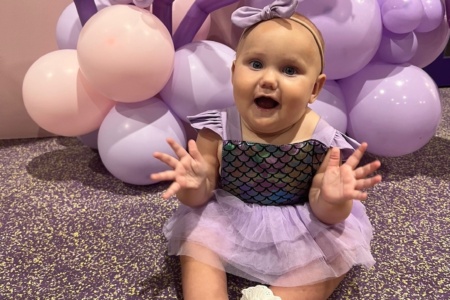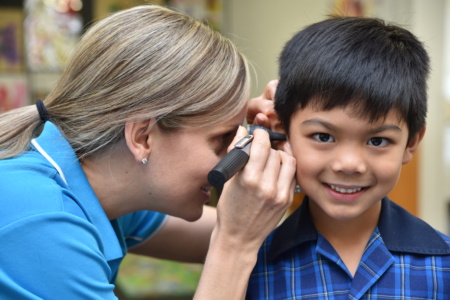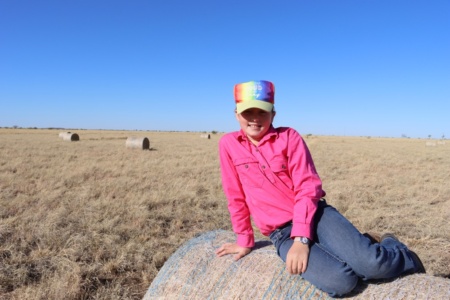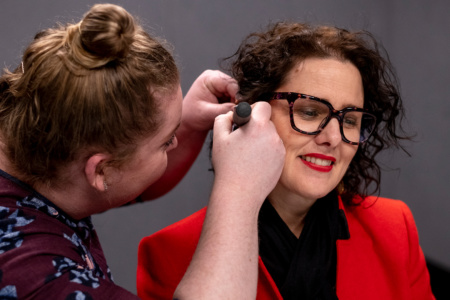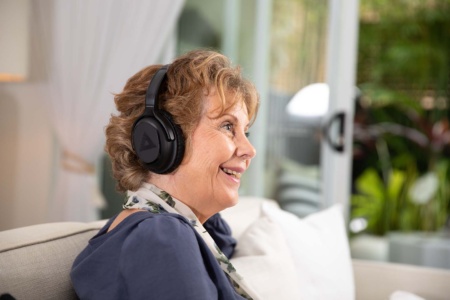With a career spanning five decades working with children who are deaf or hard of hearing, Jackie Brown’s personal hearing loss journey later in life still came with its own set of adjustments.
“I’d had a hearing test about 20 years ago, and noticed my hearing of high frequency pitches – such as the ‘s’ or ‘f’ sounds when someone was speaking – was gradually starting to taper off,” recalled Jackie.
For about 15 years the grandmother-of-seven happily wore hearing aids, until she started to notice these were no longer giving her enough clarity across all the sounds of speech.
“High frequency sounds really affect what you can understand, and I was struggling, particularly in noisier environments such as work meetings or when out for lunch with friends. My grandchildren were also coming along, and I found it very confronting that I was having trouble hearing their little voices,” said Jackie.
“I often think about Helen Keller who was deaf and blind, and she said that blindness cuts you off from things, and deafness cuts you off from people. That’s what I was beginning to experience.
“I would wonder, ‘Do I really want to go out with these friends? How many of them are going? How will I cope?’ Telephone conversations, particularly those which weren’t with someone I knew or where I didn’t know the agenda, were hard. It was becoming quite stressful when someone would call and I would struggle to understand both who they were and what they were talking about.”
Having worked at Hear and Say for almost 15 years, Jackie turned to her audiologist workmates to discuss the option of a cochlear implant.
After a comprehensive series of assessments to determine her eligibility for the cochlear implant technology, Jackie underwent surgery in 2018 – with “both eyes open” to what was involved, but excited by the possibilities ahead for clearer hearing.
“I was aware a cochlear implant wasn’t going to be a quick miracle fix, and that I wouldn’t walk out of the ‘switch on’ day and immediately be able to understand everything that was said to me,” said Jackie.
“However, my experience working with people with hearing loss for so many years meant I knew that, with great support, I could re-teach my brain to interpret what I was hearing through the cochlear implant so that it sounds like normal speech. It is truly a marvel for me now when I have the grandchildren in the backseat of the car, and I can easily pick up their little voices.”
Jackie sung the praises of attending specialised speech therapy appointments known as auditory learning, touting the regular support as a “necessary part of getting any hearing device fitted”.
“I found it absolutely essential to have that early specialised support, to get used to hearing through my cochlear implant and relearn to understand those sounds that I hadn’t heard clearly for several years. Even as a professional myself, it was so helpful being walked through the different steps, and gave me the encouragement to keep persevering,” said Jackie.
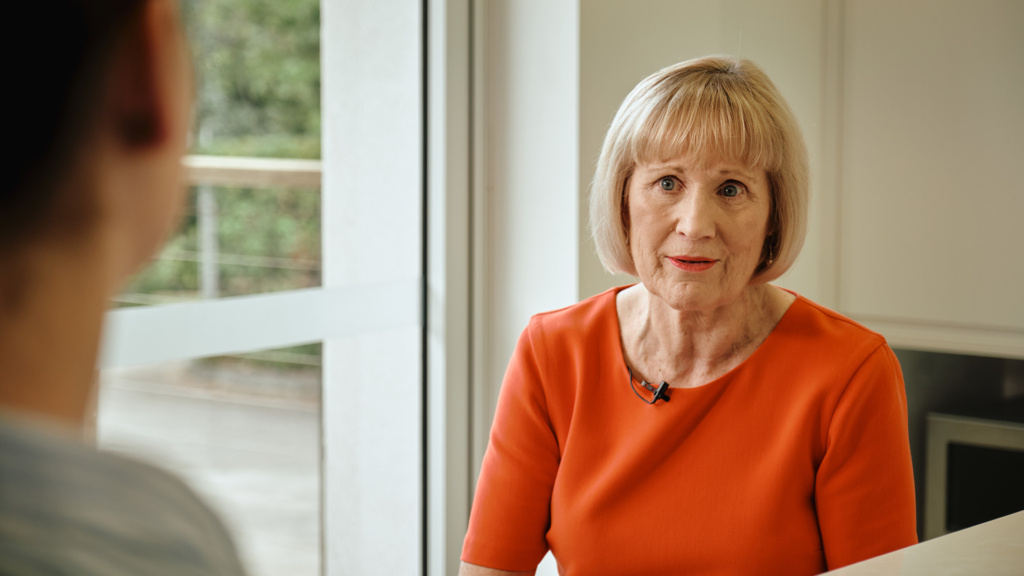
“Having a hearing loss can be quite confronting, and even though I have worked with children with hearing loss all my life, and I knew what help was available, I still found it confronting. However, I would still tell anyone that proactively looking after your hearing health is well worth it.
“A hearing loss can isolate you, and those day-to-day interactions with friends and family are so important – especially as you get older.”


